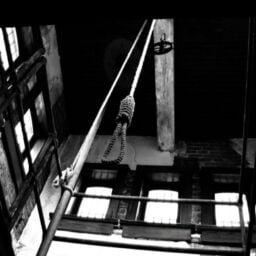
INTRODUCTION
When one crime is committed, two persons made that happen; the first is accused and the second is the victim. He is accused because he is innocent until proven guilty. The accused becomes convicted when it is proved that there is a presence of mens rea as well as actus rea which means the act has been committed with the intention to commit a crime. But he is given a chance to justify his/her acts by some general defenses. The Indian Penal Code 1860 provides some general defenses under Chapter 4 that exonerate criminal liability of a person committing a crime from Sections 76 to 106. However, the burden of proof to prove general defenses lies on the accused.
INFANCY
Section 82 and 83 of the Indian Penal Code defines criminal liability if the offense is committed by the person who comes under infancy. The IPC does not apply to any person below the age of 18 years. The law considers any person below the age of 7 years as incapable of forming malafide intention, the main ingredient to take into consideration in criminal law; therefore the act committed by such person is not an offense.
While if the person is above seven years and below 12 years, the law first looks at the maturity level from case to case and any person found mature enough will be punished under Juvenile Justice Act 2002 and will be sent to Borstal Schools for reformation. While when an act is committed by a person who is above 12 years and below 18 years, the law again looks for the level of maturity, and if found to be liable then they are sent to child prisons.
However after the 2013 amendment Act, a sub-category was added under the Indian Penal Code where any person who is above 16 years and below 18 years of age commits a brutal offense, he will be punished as mentioned for an adult and charged under Indian Penal Code 1860.
Illustration– Aman is 17 years old who always comes second in the class and always gets scolded by their parents that he couldn’t able to score and study as much as Mohit. One day he had a fight with Mohit over the issue that Mohit always comes first by the way of cheating which Mohit denied, thus Aman after the fight decided to murder Mohit so that he could come first. He murdered Mohit and is alleged to murder under IPC. While Aman claims the defense of insanity but the court denied the defense and said that by the fact that Aman is 17 years old and has committed the brutal offense to commit the crime, therefore Mohit is treated as an adult and has been punished under IPC.
INSANITY
Section 84 of the Indian Penal Code explained the criminal liability under insanity. Any person who due to an accident or misfortune happening or any medical issue is unable to differentiate between what is wrong and what is right and if he/she commits any offense then he/she can claim the defense of insanity. Thus if any crime is committed by the person who has an unsound mind while committing the crime then he is not held to be liable. Why? Because for any crime, there has to be the presence of mental element but in the instant case, the malafide intention is missing because of insanity. The insanity could be temporary and permanent. Permanent insanity refers to the person who at all times has an unsound mind and couldn’t able to differentiate between what is right and wrong. While temporary insanity refers to the person who has an unsound mind for a particular period and for the other time he is a normal person who has a sound mind.
Illustration – Pooja, a diagnosed schizophrenic has killed her 3 children and called the police after commissioning an act that her children were dead. The police arrived at the location and found that Pooja has committed the act. Pooja is charged with murder but she claimed the defense of insanity and said that she suffers from a mental disease where she couldn’t able to differentiate between what is right and wrong and there is no evidence indicating Andrea is in her good senses because she called the police after the crime. Thus the conduct is excusable under these circumstances.
GRAVE AND SUDDEN PROVOCATION
Section 300 of IPC deals with this defense of grave and sudden provocation. If a person commits the crime not by the reason of his malafide intention but due to instant provocation caused by another in such a manner that no one could able to control his impulse, then such person can take the defense of grave and sudden provocation.
Illustration: Mohan slaps Rohit on the public road after which Mohan teases Rohit for his incapacity to do anything and due to sudden and continuous provocation by Mohan, Rohit instantly gives a push to Mohan before the car and as a consequence, Rohit is dead there only. In this case, Mohan can take the defense of grave and sudden provocation if he could able to prove that he couldn’t able to control his impulse and Rohit continuously provoking him.
INVOLUNTARY INTOXICATION
Section 85 and 86 of IPC explains the defense of involuntary intoxication. Any person who administered the toxic substance against his will or knowledge resulting in a person unable to differentiate between what is right and what is wrong has committed some crime is not an offense under IPC. The courts look at whether taking any toxic substance is voluntary or involuntary and whether he is in a state of making malafide intention or not.
Illustration: Vamika goes to a party and her friend forces her to drink alcohol without her will and she ends up doing so. While returning home by car in a state of intoxication, she hit Salman who is sleeping on edge of the road. Thus in this case Vamika can take the defense of involuntary intoxication because she does not know while committing this act.
MISTAKE OF FACT
Section 76 and 79 of IPC explain the defense of Mistake of fact. It has to be noticed that mistake of fact acts as a defense and not a mistake of law. It means a person who has committed an act which is punishable by law under misconceptions of facts resulting him to believe in good faith that it is commanded by the law itself but it is not then that person is not liable because of the absence of malafide intention. But if he commits any act because of non-fulfillment on his part.
PRIVATE DEFENSE
Section 96 to 106 of IPC explains the private defense. A person committing a crime to protect his own body and property or another’s body and property from the apprehended threat which is continuous and real using reasonable and proportional force is not held liable under IPC. In other words, the use of unlawful actions or force to protect himself from any other crime cannot be considered an offense. This defense is available even when the act against which this defense is exercised is not an offense because of young age or intoxication. The act used using private defense should not be more than the harm inflicted on the offender.
Illustration: Shivani while sleeping at night at her home, one thief enters the house for stealing the jewelry. While the thief committing the act, Shivani wakes up and started shouting then the thief grabs the daughter of Shivani. While saving her daughter, she ends up killing the thief with that knife. In this instant case, Shivani can take the private defense because the act of stabbing the thief is reasonable and proportionate to danger arises.
STATUTORY AUTHORITY
The act is done in pursuance of performing the authorized act by the state which causes damage is not an offense. While if the person is doing an act under the unauthorized duty which causes damage is considered to be held liable. In the defense of statutory authority, people are authorized to do acts by the government for direct public welfare.
Illustration: The police officer arrested the wrong person who is standing in a protest thinking of him committing an act of throwing a stone at a poor man. In this instant case, the police officer has not committed any offense and can take the defense of statutory authority because he has done an authorized act.
NECESSITY
Section 81 of the IPC defines the defense of necessity. The offense is committed by the person who acts in good faith to prevent greater harm to person and property with the knowledge of a particular act if not committed then in that case he is not held liable.
Illustration: Harvey Specter was driving a car suddenly had to take a U-Turn without fault or negligence on his part in order to avoid running over four persons who are crossing the road and instead of this hut a car carrying one person. X is not liable because he did this act to prevent greater harm.
Author(s) Name: Priyal Jain (Institute of Law, Nirma University)
References:
- https://indiankanoon.org/doc/1569253/
- https://www.google.com/url?sa=t&source=web&rct=j&url=https://www.mondaq.com/india/crime/878294/general-criminal-defences-insanity-infancy-and-intoxication-part-1&ved=2ahUKEwi735edpf7vAhXLdCsKHaQFDKYQFjABegQIAxAF&usg=AOvVaw1AyN3S4FAgskM3mnBc4bk5
















